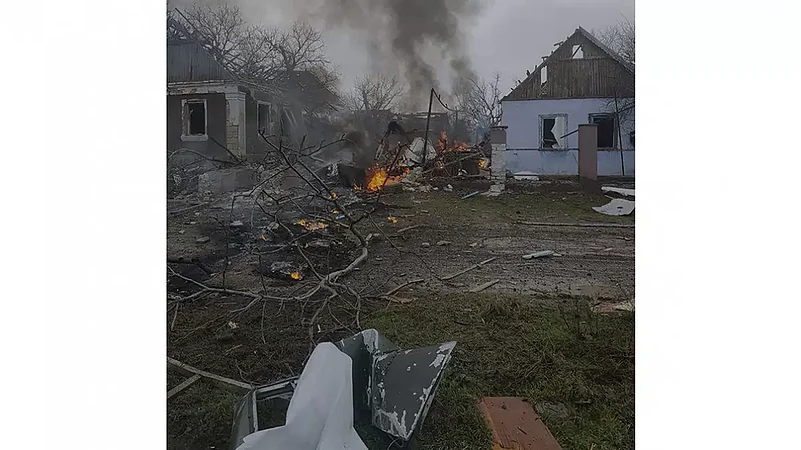Russia launched an unprecedented aerial assault on Ukrainian targets, deploying 122 missiles and 36 drones in what Ukrainian Air Force Commander Mykola Oleshchuk deemed the "most massive aerial attack" since Russia's full-scale invasion in February 2022. The devastating assault, spanning approximately 18 hours, resulted in at least 13 civilian casualties, with scores of others injured and an unknown number trapped under rubble.
Ukraine's military chief, Valerii Zaluzhnyi, reported that the Ukrainian air force successfully intercepted 87 missiles and 27 Shahed-type drones overnight, underscoring the resilience of their air defenses. The attack targeted six cities, including the capital, Kyiv, causing extensive damage to critical infrastructure, including a maternity hospital, apartment blocks, and schools.
Despite the winter weather hampering active combat along the front line, Ukrainian officials urgently called on Western allies to bolster their air defenses to mitigate the impact of such devastating attacks in the future. The plea for international support comes at a critical juncture, with signs of war fatigue straining efforts to sustain global backing for Ukraine.
The international response to this crisis includes a proposal from the United States within the Group of Seven (G7) to explore avenues for seizing $300 billion in frozen Russian assets. This proposal, supported by the United Kingdom, Japan, and Canada, is expected to be deliberated by G7 leaders around February 24, marking a significant diplomatic maneuver.
Simultaneously, a Moscow court sentenced two individuals to jail for their participation in a poetry recital critical of Moscow's invasion of Ukraine. Poet Artyom Kamardin received a seven-year sentence, while Yegor Shtovba was sentenced to five and a half years for attending the anti-mobilization protest. This development underscores the tightening grip on dissent within Russia.
Adding to the international turmoil, Belarus's President Alexander Lukashenko attended an event for a new group of children brought from Russia-occupied areas of Ukraine. The move drew international outrage, though officials refrained from disclosing the exact number of Ukrainian children in this latest group, intensifying concerns about Moscow's forced deportation of Ukrainian children.
On the diplomatic front, Ukrainian President Volodymyr Zelenskyy discussed Ukraine's peace formula in a call with Pope Francis, emphasizing the involvement of over 80 countries in the process. Zelenskyy indicated that the peace framework would be further deliberated in Davos, Switzerland, requiring Russia to withdraw all its troops from Ukrainian territory before formal talks can commence.
Furthermore, Andriy Yermak, Zelenskyy's chief of staff, reported a productive phone call with Hungarian Foreign Minister Peter Szijjarto, paving the way for a meeting between Zelenskyy and Prime Minister Viktor Orban in the near future. This diplomatic development follows Hungary's recent blocking of a new EU budget providing aid to Ukraine, creating tensions within the European Union as leaders grapple with the complex geopolitical landscape.


























